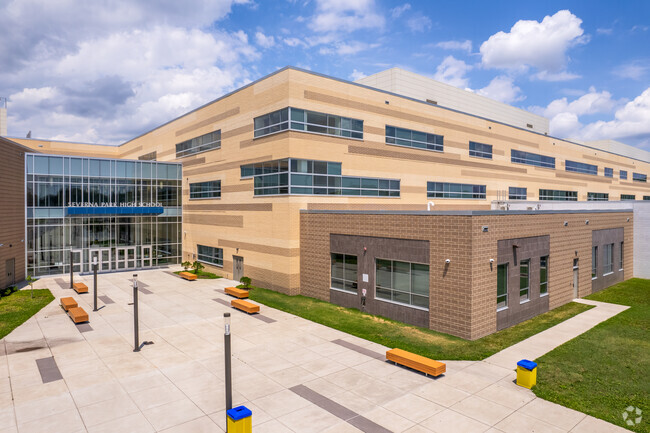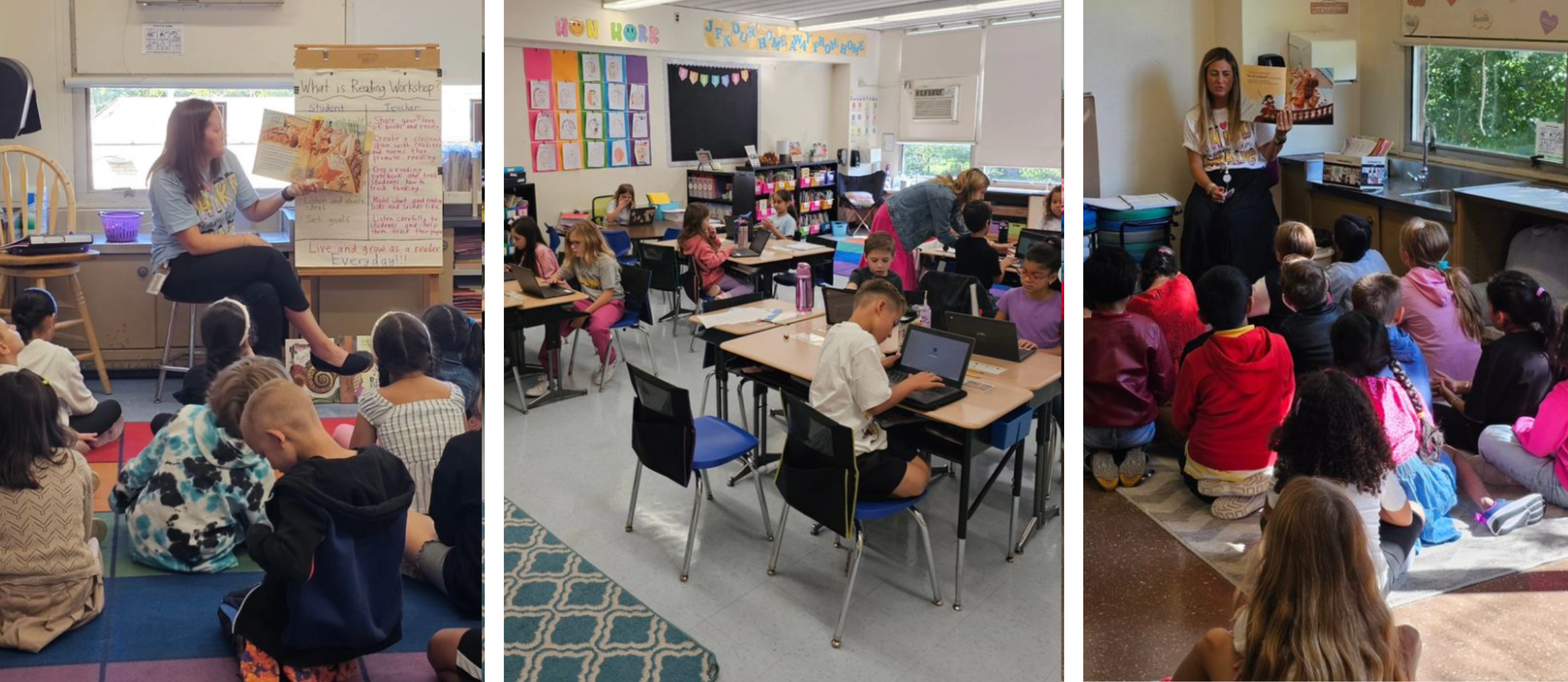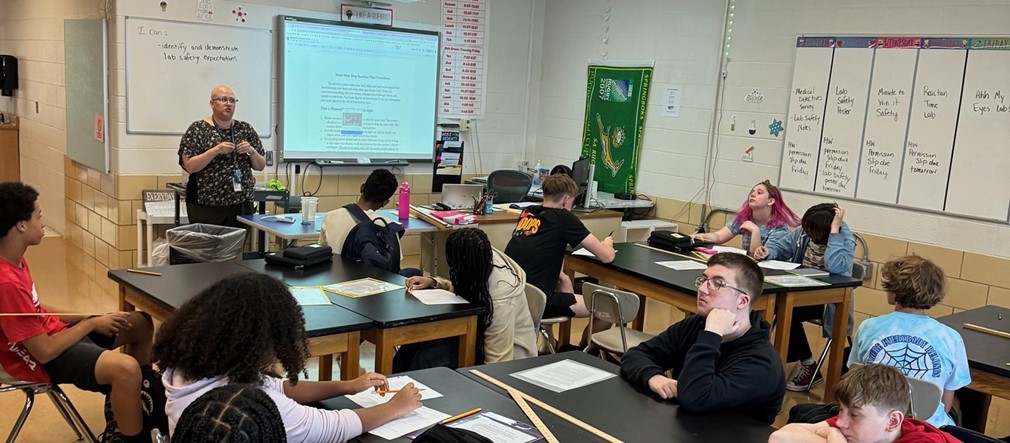Why It's Crucial to Rally With Each Other to Save Temecula Schools
Why It's Crucial to Rally With Each Other to Save Temecula Schools
Blog Article
Exactly How Schools Play an Important Role in Shaping Future Leaders and Trendsetters
By integrating project-based discovering and interdisciplinary researches, academic organizations test pupils to assess and manufacture intricate details. Educators offer as coaches, leading pupils and nurturing their potential, while extracurricular tasks further create management skills and strength.
Cultivating Essential Assuming
In today's swiftly evolving globe, cultivating critical believing within educational institutions has actually ended up being critical. As culture comes to grips with increasingly complicated worldwide obstacles, the ability to assess, review, and manufacture info is important. Colleges play a crucial duty in developing these abilities, preparing pupils to browse and attend to multifaceted issues with notified, reasoned decisions.
To cultivate crucial thinking, educators utilize numerous pedagogical strategies that motivate active learning and intellectual engagement. Class conversations, problem-based understanding, and Socratic questioning are important in promoting analytical and reflective idea processes. By testing students to interrogate presumptions and consider several viewpoints, these techniques make certain a much deeper understanding of subject past rote memorization.
Furthermore, integrating important thinking throughout the educational program reinforces its importance and applicability in diverse contexts. Subjects such as mathematics, science, background, and literature each deal special chances to create pupils' important faculties. For example, examining historic occasions requires comprehending and assessing sources context, while scientific questions demands extensive hypothesis testing and evidence-based reasoning.
Eventually, instilling critical thinking skills in trainees equips them with the cognitive devices essential for long-lasting discovering and versatility. It is with this fundamental competence that future leaders will have the ability to introduce, solve issues, and contribute meaningfully to culture.
Motivating Creativity
Accepting creativity within academic frameworks galvanizes students to think beyond standard limits and check out cutting-edge solutions. By integrating artistic endeavors and creativity workouts right into the curriculum, institutions grow a setting where creativity and creative idea are valued. This approach not just improves the educational experience yet likewise outfits trainees with the capability to deal with real-world challenges in unique means.
School can cultivate imagination with varied ways such as project-based discovering, interdisciplinary studies, and the incorporation of arts and modern technology. Project-based knowing, for example, motivates trainees to use their understanding in useful, often collaborative, projects that demand inventive problem-solving skills. Interdisciplinary researches enable trainees to draw connections in between different topics, consequently broadening their viewpoints and enhancing their creative capacities.
Furthermore, providing trainees with possibilities to involve with emerging innovations, such as coding and electronic design, further nurtures their creative capacity. These tasks prompt pupils to experiment, fall short, and iterate, which are vital parts of the innovative procedure (Save Temecula Schools). By keeping a supportive setting where trial and error is encouraged, schools can ensure that trainees establish the confidence to go after cutting-edge ideas
Basically, nurturing creative thinking in educational setups is crucial for forming future leaders and pioneers efficient in addressing complex worldwide problems with ingenuity.
Promoting Cooperation

Implementing group-based Continued understanding modules and cooperative tasks permits pupils to experience the characteristics of synergy firsthand. This not only prepares them for the collaborative nature of modern workplaces yet also nurtures leadership high qualities as they often have to handle roles such as project managers or team coordinators. In addition, collaboration in the classroom can damage down social obstacles and promote inclusivity, making sure that each trainee really feels valued and heard.
In addition, integrating technology can better sustain collective efforts. Devices like common interactive systems and digital workspaces enable trainees to interact effectively, even outside the class. As pupils create these collective abilities, they are better geared up to deal with intricate obstacles and innovate, laying the groundwork for their future duties as innovators and leaders.
Duty of Teachers as Advisors

Mentorship includes customized attention, where instructors recognize and nurture private strengths and address weak points. Save Temecula Schools. Via individually interactions, teachers can tailor their advice and support to meet each pupil's special needs, promoting a sense of self-confidence and resilience. This tailored approach grows a growth attitude, encouraging students to see failures as chances for finding out and growth
Additionally, teachers function as function designs, showing the worths of honesty, compassion, and willpower. Their actions and perspectives provide a plan for pupils to imitate, instilling a sense of ethical responsibility and social understanding. By producing a inclusive and supportive class setting, instructors enable pupils to establish social abilities that are crucial for effective leadership.
Fundamentally, the mentorship given by educators lays a fundamental framework for the advancement of future leaders, equipping them with the expertise, abilities, and worths required to stand out in an ever-evolving globe.
Effect of After-school Activities
When integrated successfully into the instructional framework, after-school activities substantially enhance pupil growth and leadership potential. These tasks offer pupils with possibilities to explore passions beyond the conventional educational program, fostering a versatile ability. Clubs, sports groups, and arts programs find more information cultivate necessary high qualities such as teamwork, time monitoring, and strength. Engagement in these tasks commonly requires students to tackle obligations, consequently supporting their management capabilities.
Furthermore, extracurricular involvement motivates creativity and advancement. Pupils took part in argument, dramatization, or songs clubs discover to assume critically and method issues from diverse point of views. These experiences infuse confidence, allowing trainees to voice their concepts and take campaign in different setups. By teaming up with peers from various backgrounds, students additionally establish compassion and interaction skills, crucial traits for future leaders.
Extracurricular tasks additionally play a critical duty in scholastic performance. Research suggests that pupils included in such programs have a tendency to have higher qualities and much better presence documents. These activities provide a healthy electrical outlet for stress and anxiety, adding to overall wellness. Thus, colleges that prioritize a balanced method to education and learning, integrating durable extracurricular programs, are more most likely look at this now to generate leaders and pioneers outfitted to meet the challenges of the future.

Final Thought
In verdict, institutions significantly shape future leaders and innovators by nurturing vital reasoning, creativity, and cooperation among trainees. By cultivating a supportive atmosphere that values individual staminas and synergy, schools outfit students with the needed abilities to browse future challenges and drive technology.
As trainees create these collaborative abilities, they are much better equipped to tackle complex challenges and introduce, laying the foundation for their future roles as leaders and innovators.
By promoting vital reasoning and analytic abilities, instructors assist trainees navigate intricate difficulties, preparing them for leadership roles in numerous areas.
By working together with peers from various histories, pupils likewise develop empathy and communication skills, important qualities for future leaders.
In verdict, institutions considerably shape future leaders and pioneers by supporting important thinking, imagination, and collaboration amongst pupils. By fostering a helpful environment that values individual toughness and synergy, colleges outfit pupils with the essential abilities to browse future difficulties and drive technology.
Report this page